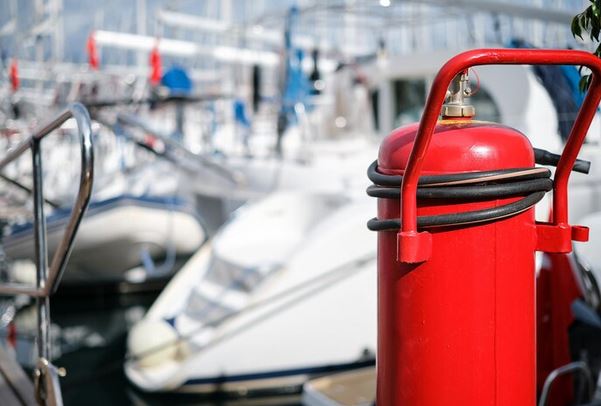Fire safety is a critical aspect of any home or business, especially in a state like New Jersey, where diverse environments and building types require specific safety measures. One of the most effective ways to combat small fires is by having the right fire extinguisher on hand. This article will guide you through the types of fire extinguishers, how to choose the right one for your needs, and important regulations specific to New Jersey.
Understanding Fire Extinguisher Classes
Before selecting a fire extinguisher, it's essential to understand the different classes of fire extinguishers and what types of fires they are designed to combat.
Class A: Ordinary Combustibles
Class A extinguishers are suitable for fires involving ordinary combustibles such as wood, paper, and textiles. They typically contain water or foam. For residential use in New Jersey, having a Class A extinguisher in common areas is advisable.
Class B: Flammable Liquids
Class B extinguishers are designed for fires involving flammable liquids such as gasoline, oil, and grease. They often contain dry chemical agents or foam. If you operate a business that handles these materials, ensure you have a Class B extinguisher readily available.
Class C: Electrical Fires
Class C extinguishers are intended for electrical fires. These are essential for homes and businesses with a significant amount of electrical equipment. They usually contain non-conductive agents like CO2 or dry chemicals.
Class D: Combustible Metals
Class D extinguishers are specifically for fires involving combustible metals like magnesium or sodium. These are less common in residential settings but may be necessary in specific industrial applications.
Class K: Cooking Oils and Fats
Class K extinguishers are designed for fires that involve cooking oils and fats, making them essential for commercial kitchens and restaurants in New Jersey.
Assessing Your Needs
When selecting a fire extinguisher for your New Jersey home or business, consider the following factors:
1. Environment
Assess the environment where the extinguisher will be placed. Is it a residential home, an office, or a warehouse? Each setting has different risks associated with it, and understanding these risks is crucial for selecting the appropriate extinguisher.
2. Fire Risks
Evaluate the specific fire risks present in your environment. For instance, if you operate a kitchen, a Class K extinguisher is essential. Similarly, businesses dealing with flammable materials should prioritize Class B extinguishers.
3. Accessibility
Ensure that your fire extinguishers are easily accessible in case of an emergency. They should be placed in locations that are visible and within easy reach, particularly in high-risk areas.
Fire Extinguisher Ratings
Fire extinguishers come with a rating that indicates their firefighting capability. The rating system includes numbers and letters, such as 2A:10B
. The number before the letter indicates the amount of firefighting agent contained in the extinguisher. Higher numbers mean a higher capacity to handle fires.How Ratings Work
- Class A: The number before "A" indicates the amount of water equivalent (1 unit for every 1,000 square feet).
- Class B: The number before "B" signifies the square footage of flammable liquids it can effectively extinguish.
- Class C: Class C extinguishers do not have a numerical rating but indicate that they are safe for electrical fires.
Local Regulations in New Jersey
When choosing a fire extinguisher, it’s crucial to be aware of New Jersey's regulations concerning fire safety. The New Jersey Uniform Fire Code outlines specific requirements for fire extinguishers based on the type of occupancy.
Fire Extinguisher Requirements
- Residential Properties: New Jersey law recommends at least one fire extinguisher per floor in residential homes, especially near kitchens and garages.
- Commercial Properties: Businesses must comply with more stringent regulations, including the placement and maintenance of fire extinguishers based on the size and nature of the operations.
Regular Maintenance and Inspections
In New Jersey, fire extinguishers must be inspected annually by a certified professional. This ensures that they are fully operational and comply with local safety codes.
How to Maintain Your Fire Extinguisher
Once you've selected the appropriate fire extinguisher for your New Jersey home or business, maintaining it is essential for ensuring its effectiveness in an emergency. Here are some key maintenance tips:
Regular Inspections
Conduct monthly visual inspections of your fire extinguishers. Check for:
- Clear and unobstructed visibility
- Proper mounting or placement
- No physical damage or rust
- Pressure gauge in the green zone
Annual Professional Inspections
Schedule an annual inspection by a certified fire safety professional. This will ensure that your extinguishers are fully charged and functioning correctly.
Replacement and Recharge
If your fire extinguisher has been used, even partially, it should be recharged immediately. Additionally, extinguishers have a shelf life, usually between 5 to 15 years, depending on the type. Make sure to replace old or expired extinguishers.
Conclusion
Choosing the right fire extinguisher new jersey home or business is crucial for ensuring safety in case of a fire. Understanding the different classes of extinguishers, assessing your specific needs, and complying with local regulations are essential steps in this process.Choosing the right fire extinguisher for your New Jersey home or business is a vital step in ensuring safety and preparedness in the event of a fire. By understanding the various classes of extinguishers and their specific applications, you can assess your unique needs based on the environment and potential fire hazards. Additionally, adhering to local regulations ensures that you remain compliant and, most importantly, safe.
Regular maintenance and inspections are equally crucial; they ensure that your fire extinguishers are always ready for use when needed.




 (2).jpeg)

Comments